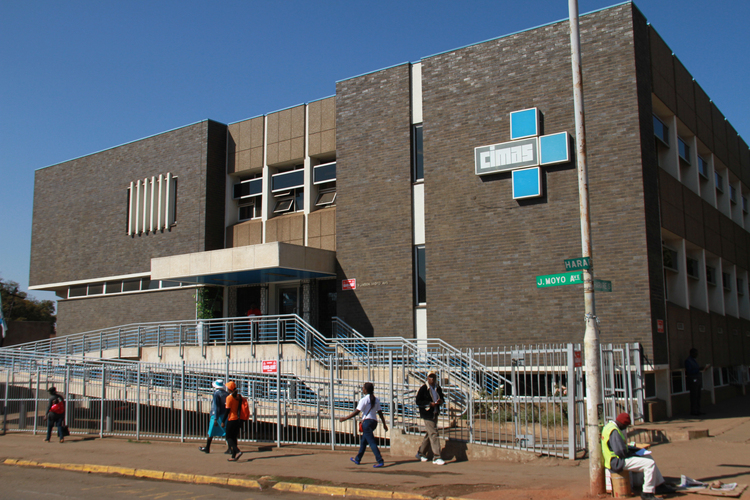
The Sunday Mail


A regulatory authority to supervise medical aid societies as part of measures aimed at bringing sanity to the sector
Government will soon establish a regulatory authority to supervise medical aid societies as part of measures aimed at bringing sanity to the sector.
Health and Child Care Minister Dr David Parirenyatwa could not give a time-frame for the setting up of the regulatory body but was quick to point out that the intervention is in response to the uproar over the way medical aid societies are operating.
This all comes at a time when medical aid societies and their members are locked in battles over several issues which include tariff hikes, fraudulent claims and alleged dishonesty on the part of the health service funders.
Medical aid societies on the other hand are also at loggerheads with doctors for allegedly refusing to pay consultation fees incurred by members on general schemes.
Dr Parirenyatwa reckons this will soon be a thing of the past.
“We will soon be introducing a regulatory authority for medical aid societies so that we can reduce health cover costs by restoring order in the sector,” he said.
“Things such as tariff increases and members’ complaints are not handled properly so this authority will address those issues. This will make quality health services more accessible to everyone.
“At the moment we are investigating the increase of subscription fees by Cimas because as Government we have not been consulted on the matter.”
Cimas, which has over 200 000 subscribers and is arguably one of the largest medical aid societies in the country, recently increased its membership contributions by about 50 percent.
The company, in a circular, indicated that the increase was influenced by fraudulent claims which have greatly compromised the viability of the organization.
Under the individual private scheme, a member will now fork out $146, while a spouse will pay $146.
A child under the same scheme will pay $71 and a student $118 respectively.
For the top scheme, the Individual Medexec, the member and spouse each pay $174, a child $104 and a student $174.
The increase comes at a time when prices of most basic goods and services are going down due to the obtaining price re-alignment.
Observers blame medical aid societies for the chaos in the sector. Consumer Council of Zimbabwe director Ms Rosemary Siyachitema said while they do not condone unnecessary increase of prices, they are going to engage with health funders to get a better understanding of issues bedeviling the sector.
“We condemn the unnecessary hiking of fees because this will disadvantage consumers but we will engage with the responsible parties so that we can get to common ground,” she said.
“As for now we have meetings scheduled with Cimas and Parirenyatwa Hospital to try and hear their side of story pertaining to the increments.” However, health funders say the cost of health insurance in the country is not inflated but is determined by a number of factors. Association of Healthcare Funders of Zimbabwe chief executive Mrs Shylet Sanyanga admitted that sometimes funders increase fees to compensate for claim loses.
“Funders usually increase subscriptions in order to try and match claims costs. Sometimes we have claims loss ratios of over 100 percent yet this should be 80 percent according to international standards,” she said.
“In addition to that, increase in medical aid subscriptions is also being driven by an increase in the number of healthcare service providers coming on board and by the increased number of claims being submitted.”
Mrs Sanyanga said the recent fee hikes are not global but are business decisions.
The increase of admission fees at Parirenyetwa Hospital has also drawn the ire of the public with civic groups saying the move will be damaging as most workers are earning salaries below the poverty datum line.
Announcing the decision through a memo issued on June 5, the hospital’s finance director Mercy Sanzira said the new tariffs took effect on June 8.
“Please be advised that with effect from 8th June 2015, all medical patients admitted to the following wards will pay a medical fee deposit on admission as follows: ward C7/C8/C9 – $140, C4/C5/C6 – $185, oncology chemotherapy – $50 and oncology radiotherapy – $185, above five years – $140,” she said.
Previously, patients would part with only $50 on admission.
The permanent secretary in the Ministry of Health and Child Care, Dr Gerald Gwinji highlighted that although state hospital boards can come up with proposals, Government has the sole mandate of approving new admission fees.
“They are yet to consult so it can’t be effective,” he said.
“Whatever the case, no one should be sent away or denied whatever treatment. If a patient goes to Avenues, let him or her be denied but Parirenyatwa or Harare Central Hospital should be there for that patient.”
Dr Parirenyatwa however insisted that the hospital has not increased admission fees.
“The hospital did not increase fees, what they did is that they changed the payment plan. It costs $45 a day for an admitted patient and the hospital has simply shifted from charging per day to charging for three days.”A National Health Insurance Fund has been mulled as a potential solution to the problem of limited access to quality healthcare but the idea has been on Government’s drawing board for over two decades.



